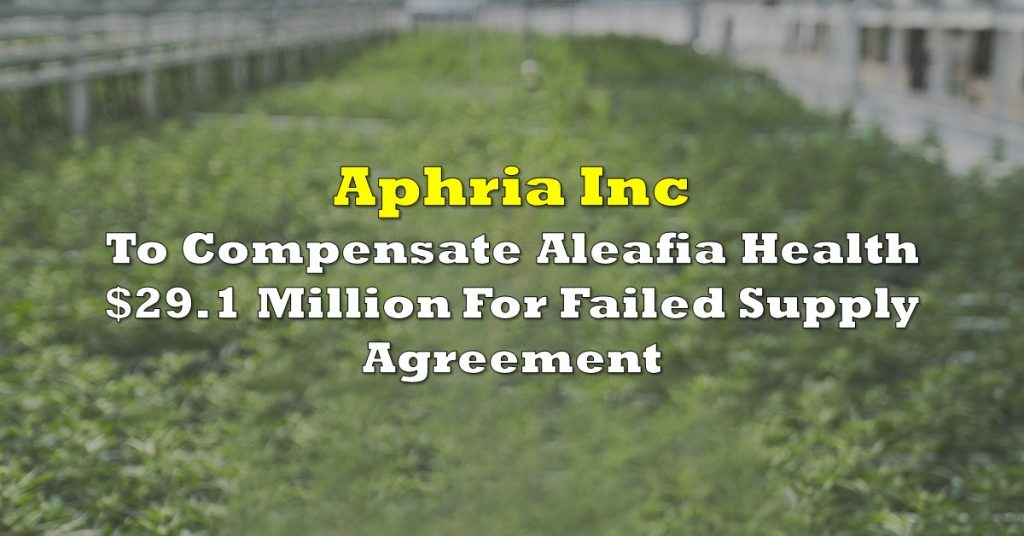Yesterday we took a break from small cap equities to take a look at the corporate bond market that might or might not be in the process of leading a global financial collapse. Today we’re having a quick look at the very few tradeable bonds in the legal cannabis world, which was falling apart a long time before the equities of global industry made it fashionable.
Individual bonds are easier to handicap, because they’re reflections of an individual company’s prospects of keeping up payments. Most of the tradeable convertibles are effectively junk bonds, suitable for bottom fishing by traders inclined to camp on an Aurora Cannabis (TSX: ACB) (NYSE: ACB)-style early conversion at a price higher than they got it for, which doesn’t sound compelling or fun, and the bonds don’t look junky enough to do that quite yet anyhow.
For those unfamiliar, the companies issue these debentures with $1000 face values at whatever coupon rate will sell the best. They trade in board lots of 10, so if a debenture is trading at $90, the market is pricing in a 10% premium for the risk a holder is taking for holding it until maturity. If the bond paid a 5% coupon, the holder would also collect 5% interest for the period they hold it.
In the case of a convertible bond issued by a company with negative cashflow, the bond is effectively pricing in the probability that the underlying equity will be at the conversion price by the end of the term, because odds are long the company will be able to come up with the principle in cash.
The Supreme Cannabis Company’s convertible debentures (TSX: FIRE.DB), mature in October of 2023 and are slated to convert at $2.45/share. This one trades by appointment because there are better places to go for a 6% coupon, and anyone who prices it at the proportional rate of the equity that it’s meant to convert into gets suddenly afraid to look down. Supreme closed at $0.18/share Thursday, meaning that if this debenture issue early-converted today, it would be worth closer to $10 than $40 (ignoring the interest due through maturity).
Aleafia Health (TSX: ALEF) is in a similar situation with $40 million in outstanding convertibles (TSX: ALEF.DB) that convert at $1.55. The stock last traded at $0.38, giving the debenture an implied early conversion price closer to $28 than its most recent close at $49. The debentures pay 8.5%, mature in June of 2022. Aleafia is slated to release fiscal 2019 results March 18. They showed $51 million in cash at the end of September, 2019.
There’s really only one cannabis company with a fighting chance of paying its debt off in cash.

The top-volume traders on the CSE isn’t where one expects to find decent value in a high-yield bond, but here we are. Trulieve’s $USD-denominated senior secured debentures (CSE: TRUL.DB.U) aren’t convertibles issued by some desperate, cashflow-negative cannabis company who was taking advantage of the last of the daylight in 2019. They’re the debt of literally the only profitable cannabis company in North America.
The debentures were issued in June of 2019 to raise $68 million. They closed at $87.50 Thursday. They mature in June of 2024, and pay 9.75% pa in interest, semi-annually along the way.
This one trades itself a chart that looks like a child’s pencil tracing of a dinosaur partly because banking laws preclude US entities from trading it. TRUL.DB.U isn’t included in any corporate bond ETFs or available in the standard facilities that bond traders use to go about their business. Accordingly, it suffers from a lack of liquidity.
Trulieve is due to release their audited year-end financials before April 30. They’re usually early with these things, and they have a habit of surprising the street.

The company reported $70.7 million in revenue in the quarter ended September 30th, good for $60.2 million in bottom line, after-tax earnings.
The author has no securities or affiliations related to any organization mentioned. Not a recommendation to buy or sell. Always do additional research and consult a professional before purchasing a security. The author holds no licenses.









